High-Intensity Focused Ultrasound (HIFU) in Lebanon
Search and Compare the Best Clinics and Doctors at the Lowest Prices for High-Intensity Focused Ultrasound (HIFU) in Lebanon
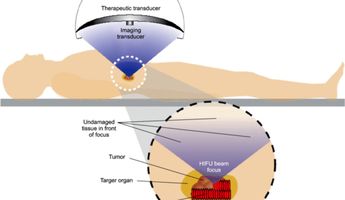
Find the best clinics for High-Intensity Focused Ultrasound (HIFU) in Lebanon
No clinics available
Indonesia offers the best prices Worldwide
Price: $ 56

- Home
- Lebanon
Compare Before & After Photos of _procedure_photos.phpHigh-Intensity Focused Ultrasound (HIFU)
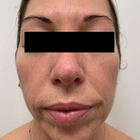
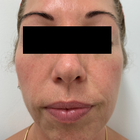
Front view
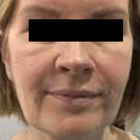
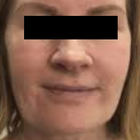
Front view
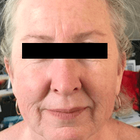
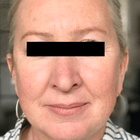
Front view
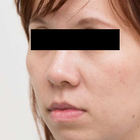
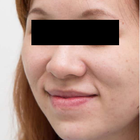
Front view
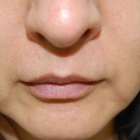
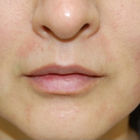
Front view
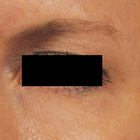
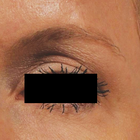
Front view
WHY US?
At Medijump, we're making medical easy. You can search, compare, discuss, and book your medical all in one place. We open the door to the best medical providers worldwide, saving you time and energy along the way, and it's all for FREE, no hidden fees, and no price markups guaranteed. So what are you waiting for?

Free

Best Price

Widest Selection

Risk-Free
What you need to know about High-Intensity Focused Ultrasound (HIFU) in Lebanon
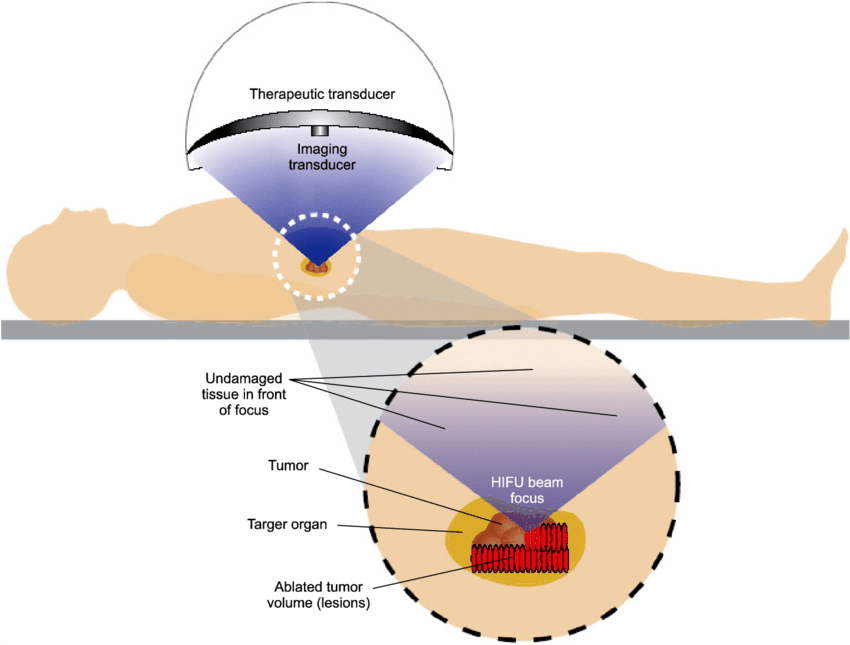
High intensity focussed ultrasound technique (HIFU) also known as focussed ultrasound surgery (FUS), uses non-ionizing ultrasound waves to heat up your body tissues. Temperature can be increased up to 70 to 90°C. These sound waves do not pass through air and bone. It is used for multi-purposes. It works to increase your blood, and lymph flow stimulates cell division and destroys tumor cells. It can also be used to treat a number of disorders including various types of cancer and uterine fibroids. Its use in the treatment of prostate cancer is gaining fame. It can also be used for cosmetic reasons, to reduce wrinkles, aging lines and to lift your loose skin. It is found to be most effective on jawline and cheeks. It should always be performed by the experts because the sonication of the wrong tissue can be dangerous. Also, there might be incomplete destruction of the tumor. Some areas of your body can not be sonicated as they are sensitive to sound waves, this should also be kept in mind while performing HIFU. It can only be used to treat localized cancer and tumors. Cancer which has spread cannot be cured through HIFU.
As HIFU is involved in the treatment of a number of diseases, before going through it, you may suffer from those diseases. These disorders include ovarian fibroids, different types of cancers, breast tumors, Parkinsonism, and a number of other neurological disabilities. You might have loose skin of face, neck, and chest. Vaginal laxity is also a problem. After HIFU, your tumors are destroyed, cancer cells are killed and diseases are cured. Your loose skin looks tightened and strengthened. Wrinkles and aging lines are gone. Vaginal and skin laxity are removed. You look younger than your actual age.
What does a High-Intensity Focused Ultrasound (HIFU) Procedure Involve?
The procedure begins with cleaning the area to be sonicated with alcohol swabs so that there are no germs and bacteria. In the next step, a gel is applied to your skin. Magnetic resonance imaging (MRI) or ultrasound is used to focus the exact tissue, organ or tumor that needs to be treated. The individual is sedated to avoid discomfort and pain during the procedure. After this, the procedure differs according to the purpose of HIFU. In general, an acoustic lens is used to focus sound waves on the targeted organ. The transducer device is used to emit sound waves. The sound waves propagate through the various layers of skin to reach the tumor to be destructed. When sound waves reach the tumor, heat is produced there increasing the temperature up to 90°C in 20 seconds only. This heat starts destroying the cancer cells there.
How Long Should I Stay in Lebanon for a High-Intensity Focused Ultrasound (HIFU) Procedure?
It is a 1 to 4 hours procedure. It depends upon the purpose for which HIFU is being performed. Generally, it is an outpatient procedure. You can be discharged from the hospital after the effects of the sedatives subside. You should plan to stay in Lebanon for at least 14 days after your Procedure, this will allow for the initial recovery and follow-up check-ups, etc.
What's the Recovery Time for High-Intensity Focused Ultrasound (HIFU) Procedures in Lebanon?
The recovery time differs and depends upon the purpose for which HIFU is being carried out. You may suffer from pain and discomfort for 3 to 4 days after the procedure. The soreness and swelling will subside in 2 to 3 weeks. It has less recovery time and has less invasive techniques approved by the FDA. The Non-ionizing radiations used in this technique are the least damaging.
What sort of Aftercare is Required for High-Intensity Focused Ultrasound (HIFU) Procedures in Lebanon?
Aftercare differs in accordance with the purpose for which HIFU is done. However, the following points should be kept in mind to look after yourself at home after being discharged:
- Visit your doctor on a regular basis.
- Do not drive home if you are still under the influence of sedatives.
- Eat healthily. Follow a diet plan made by an expert. It can help you recover faster.
- Take your medicines as and when prescribed by the doctor.
- Take a rest and give yourself time to recover.
- In the case of HIFU for cosmetic reasons, avoid contact with sunlight and wear sunscreen while going out.
- Do not rub or massage your skin.
- Look for something wrong. If you find any sign, visit your doctor immediately.
- In case of any discomfort, contact your physician. Do not go for self-medication.
What's the Success Rate of High-Intensity Focused Ultrasound (HIFU) Procedures in Lebanon?
HIFU has been found to be very successful in the treatment of most of the disorders. However, the success rate differs for each purpose. According to a study, the overall success rate for prostate cancer treatment was reported to be 84%. Cancer patients were divided into 3 groups. The high-risk group showed a low success rate. The intermediate group showed a higher success rate reaching 83.4% and the low-risk group showed the highest success rate of 94.2%. It is also found to be very effective and successful in treating skin laxity and uterine fibroids.
Are there Alternatives to High-Intensity Focused Ultrasound (HIFU) Procedures in Lebanon?
In actuality, HIFU itself is a non-surgical alternative to most of the surgeries. However, the following are some useful alternatives to HIFU:
- Dermal fillers: it is an alternative of HIFU for a facelift. Injections containing Botox, Restylane, etc. are given into your skin to make it look lifted and plump. Your skin looks wrinkle-free and you look younger than your age.
- Uterine artery embolization: this is a treatment for uterine fibroids. Arteries supplying the uterus are occluded by injecting an embolic agent into it. This cuts off blood supply to the fibroids causing them to shrink and ultimately die.
- Radical prostatectomy: also known as an open prostatectomy, entire prostate and seminal vesicle along with some lymph nodes in the pelvic area is surgically removed. Nerve damage is avoided to ensure erection and active sexual life afterward.
- Bilateral orchiectomy: in this surgery, both the testicles are surgically removed. This helps in treating prostate cancer.
- Brachytherapy: in this therapy, radioactive substances are directly inserted into the prostate gland. These are called seeds which give off radiations around the area where they were placed.
Whilst the information presented here has been accurately sourced and verified by a medical professional for its accuracy, it is still advised to consult with your doctor before pursuing a medical treatment at one of the listed medical providers
No Time?
Tell us what you're looking for and we'll reachout to the top clinics all at once
Enquire Now

Popular Procedures in Lebanon
Prices Start From $979

Prices Start From $714

Prices Start From $16

Prices Start From $28

Prices Start From $53

Recommended Medical Centers in Lebanon for procedures similar to High-Intensity Focused Ultrasound (HIFU)

- Interpreter services
- Translation service
- Religious facilities
- Medical records transfer
- Medical travel insurance
- Health insurance coordination
- TV in the room
- Safe in the room
- Phone in the room
- Private rooms for patients available

- Interpreter services
- Translation service
- Religious facilities
- Medical records transfer
- Medical travel insurance
- Health insurance coordination
- TV in the room
- Safe in the room
- Phone in the room
- Private rooms for patients available

- Interpreter services
- Translation service
- Religious facilities
- Medical records transfer
- Medical travel insurance
- Health insurance coordination
- TV in the room
- Safe in the room
- Phone in the room
- Private rooms for patients available

- Interpreter services
- Translation service
- Religious facilities
- Medical records transfer
- Medical travel insurance
- Health insurance coordination
- TV in the room
- Safe in the room
- Phone in the room
- Private rooms for patients available
High-Intensity Focused Ultrasound (HIFU) in and around Lebanon
Lebanon, a country on the eastern shore of the Mediterranean Sea, is one of the smallest sovereign states. The country boasts a fascinating mixture of the Middle East and the West, Christianity, and Islam, and tradition and modernity. It has everything from golden beaches and World Heritage Sites to energetic nightlife and delicious cuisine. Among other countries in the Middle East, Lebanon appears to be one of the most popular medical tourism destinations. Over 10% of the tourists visiting the country, particularly from neighboring countries, come to receive medical care. Many hospitals and clinics in the country are accredited to the ISO:9000 standard and offer world-class specialist services in spine treatment, orthopedics, organ transplant, and other complex surgeries, as well as advanced cancer treatments. Cosmetic and reconstructive surgery are also popular.
Popular Parts of Lebanon
Beirut, the capital and largest city of Lebanon, is filled with historic landmarks and natural wonders. The most famous attractions in the city are the National Museum of Beirut, the Corniche and Pigeon Rocks, Sursock Museum, and Mohammed Al Amin Mosque. Many people also come to Lebanon to visit the port town of Sidon. Once a rich and thriving Phoenician city, it is dotted with historical monuments and ancient remnants, particularly in its Old City. Other popular cities include Tripoly, Baalbek, Byblos, and Tyre.
Weather and Climate in Lebanon
Lebanon has four seasons: winter (December to March), spring (April to May), summer (June to September), and autumn (October to November). Winter is the rainy season with high precipitation levels and cool temperatures. It is snowy in the mountains, but in some places, such as Beirut, it just rains during this season. Summer is hot, sunny, and dry, and can get very humid in cities located close to the sea. In the summer, the average temperatures are around 28°C to 30°C. Spring and autumn are both warm and pleasant.
Getting around in Lebanon
The main international airport where visitors fly into and out of Lebanon is Beirut–Rafic Hariri International Airport, which is the only operational commercial airport in the country. It serves international flights to numerous major cities across Europe and the Middle East, including Moscow, Paris, London, and Dubai. Given the small size of the country, there are no internal flights. Intercity buses and minibus are available and have an extensive network, especially in coastal areas. The best way to get around the country is by hiring a car (with a driver) or by using intercity taxis.
Tourist Visas in Lebanon
All visitors need to obtain a visa to enter and stay in Lebanon unless they come from one of the seven visa-exempt countries (including Kuwait, Bahrain, Qatar, Saudi Arabia, Oman, the United Arab Emirates, and Jordan). Citizens of 81 countries, including all EU countries, Australia, China, Canada, and the United States, are eligible for a visa on arrival for a maximum stay of 30 days. A conditional visa on arrival is available for citizens of 15 countries, including Algeria, Libya, Iraq, and Yemen.
Additional Information
- Local Currency: Lebanese Pound (LBP) is the official currency in Lebanon. 1 USD is equivalent to around 1,507 LBP. US dollars and the euro is widely accepted as well.
- Money & Payments: ATMs are widely available in many places around Beirut and other large cities. Many ATMs dispense both US dollars and Lebanese pounds. Credit cards, particularly Visa and MasterCard, are accepted at most major establishments. Tipping can be expected, usually around 10% to 15% of the bill.
- Local Language: Arabic is the official language in Lebanon. English and French are widely spoken as well, and many Lebanese can speak at least two to three languages.
- Local Culture and Religion: Islam (around 60% of the population) and Christianity (around 34%) are the primary religions in Lebanon. About 5% of Lebanese practice the Druze faith, while other religions are practiced by the remaining 1% of the population.
- Public holidays: New Year’s Day, Christmas Day, Eid al-Fitr, Eid al-Adha, All Saints’ Day, Resistance and Liberation Day, as well as Independence Day are some of the more important holidays in Lebanon.
Popular Searches
- Plastic Surgery in Thailand
- Dental Implants in Thailand
- Hair Transplant in Thailand
- Breast Augmentation Thailand
- Gastric Sleeve in Thailand
- Gender Reassignment Surgery in Thailand
- Laser Hair Removal in Bangkok
- Botox in Bangkok
- Dermatology in Bangkok
- Breast Augmentation in Bangkok
- Coolsculpting in Bangkok
- Veneers in Turkey
- Hair Transplant in Turkey
- Rhinoplasty in Turkey
- Stem Cell Therapy in Mexico
- Rhinoplasty in Mexico
- Liposuction in Mexico
- Coolsculpting in Tijuana
- Rhinoplasty in Korea
- Scar Removal in Korea
- Gastric Sleeve in Turkey
- Bone Marrow Transplant in India
- Invisalign in Malaysia
- Plastic Surgery in the Dominican Republic
- Tummy Tuck in the Dominican Republic
- Plastic and Cosmetic Surgery in Poland
- Rhinoplasty in Poland
- Hair Implant in Poland
- Dental Implants in Poland
- IVF in Turkey